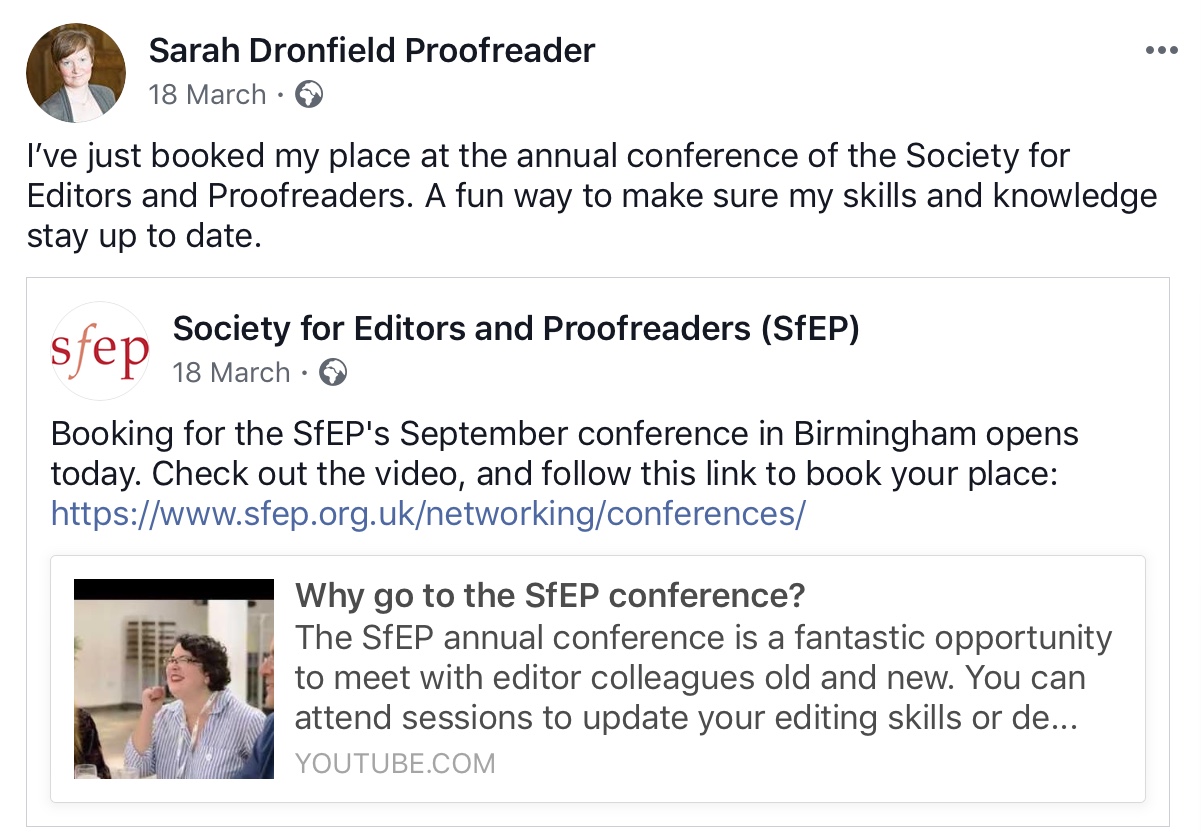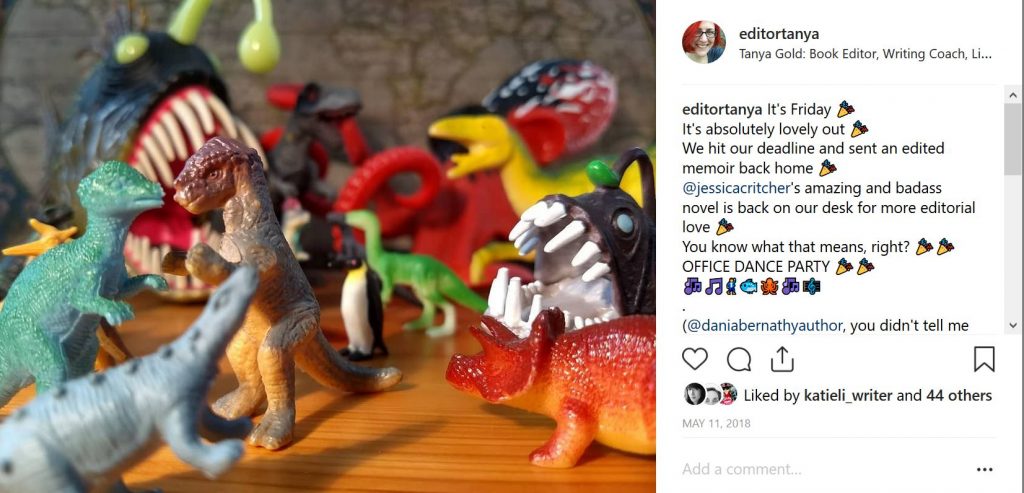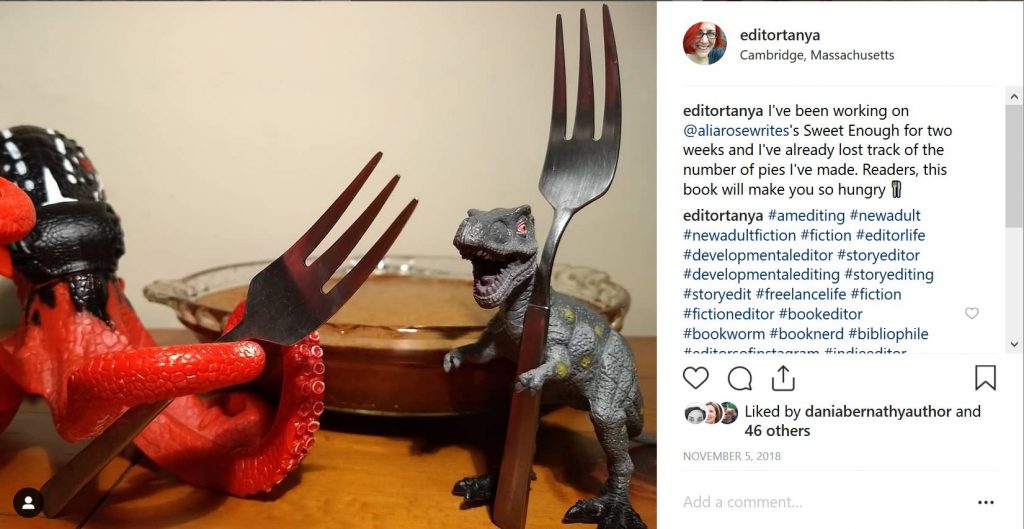The CIEP wise owls share their tips for dealing with the unexpected – what kind of planning can a freelance editor or proofreader do to lessen the impact of illness, bereavement or other life events on their business and clients?

 There’s often a perception that being freelance means a life free of impositions by other people, and there are certainly elements of truth to that. It’s also true that many clients will be warmly understanding when unavoidable circumstances mean a deadline becomes tenuous. But the cold, hard reality is that sometimes a deadline just cannot be shifted. Sometimes the push might come from the client (they may have financial and scheduling commitments that mean your lateness will create havoc for them) but sometimes the push to knuckle down and hit the deadline no matter what can come from you (if, for example, getting behind on your current project would have an unmanageable knock-on effect on your scheduling of other future projects). The result is often that a freelancer will find themselves working when they really, really wish they didn’t have to.
There’s often a perception that being freelance means a life free of impositions by other people, and there are certainly elements of truth to that. It’s also true that many clients will be warmly understanding when unavoidable circumstances mean a deadline becomes tenuous. But the cold, hard reality is that sometimes a deadline just cannot be shifted. Sometimes the push might come from the client (they may have financial and scheduling commitments that mean your lateness will create havoc for them) but sometimes the push to knuckle down and hit the deadline no matter what can come from you (if, for example, getting behind on your current project would have an unmanageable knock-on effect on your scheduling of other future projects). The result is often that a freelancer will find themselves working when they really, really wish they didn’t have to.
There’s no magical solution when you find yourself in this situation. Obviously the first step is to talk to your client and find out whether there’s any leeway in the deadline (even a day or two may make all the difference) or whether, for example, you might be able to deliver the work in stages. If you then feel the work will be manageable, get it done while taking as much care of yourself as possible, perhaps varying your usual hours around when you feel more able to focus. Shutting down your email and giving yourself a break from ongoing non-urgent commitments (work and non-work) are other possibilities that might help. And, if you can, look ahead to your future projects and see whether they can be moved around to give you some recuperation time once you’ve finished your current task.
In some circumstances, though, no matter what you do, you won’t be able to hit the deadline your client needs. When this happens, one possibility, if your arrangement with your client allows, may be to subcontract the work to another freelancer whose work you trust. However, if that’s not possible (or desirable), the most important thing you can do for the sake of your relationship with your client is to let them know as soon as possible that you won’t be able to meet the deadline. Few things are more damaging to a business relationship than failing to keep the other party informed about circumstances that might affect their ability to manage their schedules and stakeholders. What happens after you’ve told your client will vary widely between clients, and of course the worst-case scenario is that you end up losing the current project or even future work. Sometimes this is just an inevitable part of being freelance: we’re only human and we don’t have bottomless resources. However, in my experience at least (both as the freelancer and as the client), when circumstances that are truly beyond the freelancer’s control are handled with professionalism and good communication, there is rarely a major loss of future work.

Needing to take time off work for illness can be tough for freelancers, and I admit it’s something I haven’t got quite right yet myself! Along with everyone else in the UK, earlier this year I had the winter lurgy and, while I was able to scale back my workload so I could rest, I didn’t feel able to take time off completely. Clients would most likely have been sympathetic, but putting off too much work would only have affected projects scheduled in afterwards, which I didn’t want to have to send elsewhere. I battled through it all, but it wasn’t easy at times. So based on my recent experience, which I didn’t handle perfectly, here are a few tips for mitigating the problem, if not entirely solving it.
- If some deadlines can be extended, negotiate this with clients as early as possible. They will usually be sympathetic, even if they can’t give you much extra time.
- Don’t try to push on with work if you’re feeling too ill – it won’t be of a high standard. Take a break, or a nap, and come back to it when you’re fresher.
- Even if work can’t grind to a halt, ask for and accept help in other areas of life to ease the pressure.
- With all projects, try to allow some contingency in the schedule. This helps if things don’t come at expected times, too.
- Stay vigilant when it comes to rates. It’s difficult to take any time off if you’re only just covering your costs at the best of times.
- Seek the support of colleagues. Freelancing is always demanding, and working through illness is just another aspect of this. A little sympathy can go a long way.
 I think there are two aspects to dealing with the unexpected: preparing for it, and dealing with it when it happens. Wise financial gurus tell us we should have three months’ income stashed away to cover our expenses if we’re not earning; there are income protection insurance policies that pay out when we can’t work due to illness and injury; the government pays Employment and Support Allowance if an illness or disability affects our ability to work (though if we have stashed away that three months’ income, we may not be entitled).
I think there are two aspects to dealing with the unexpected: preparing for it, and dealing with it when it happens. Wise financial gurus tell us we should have three months’ income stashed away to cover our expenses if we’re not earning; there are income protection insurance policies that pay out when we can’t work due to illness and injury; the government pays Employment and Support Allowance if an illness or disability affects our ability to work (though if we have stashed away that three months’ income, we may not be entitled).
As well as thinking about the financial aspect of the unexpected, there’s the practical aspects of running a business too – who is going to contact clients if we are unable to? A great suggestion on the CIEP forums a couple of years ago about a disaster plan was turned into a blog post; knowing that everything is in order will mean one less thing to worry about if faced with long-term or terminal illness.
Even an absence of a few days has implications – good relationships with clients are going to be essential when asking for a deadline extension or having to return a project unfinished. The temptation is always there just to keep on going, but sometimes it’s best to be realistic, bite the bullet, take however many days off, and then come back ready for action. Working when unwell or grieving may do more damage – to our work and our health – than good.
Of course, this is all easier said than done – I need to get my disaster plan back to the top of my to-do list!
 Freelancers with corporate experience may have come across disaster recovery planning before, and it’s something you need to take on in your own business – ideally ahead of needing to call on it! Think about all the ways you can come a cropper, and make plans. You may want to investigate income protection insurance and personal accident cover (as well as professional indemnity insurance, in case you blunder because you’re not on top form) so that if you’re unable to work because of ill health, you still have some income.
Freelancers with corporate experience may have come across disaster recovery planning before, and it’s something you need to take on in your own business – ideally ahead of needing to call on it! Think about all the ways you can come a cropper, and make plans. You may want to investigate income protection insurance and personal accident cover (as well as professional indemnity insurance, in case you blunder because you’re not on top form) so that if you’re unable to work because of ill health, you still have some income.
Your plans will vary according to the type of work you do. I work at book length almost all the time, so I build in wiggle room for my migraines and other contingencies (I usually allow at least four contingency days per project). If you’re whipping through short articles on a tight timescale, that’s harder to deal with, but it does mean you shouldn’t fill all your time with scheduled work – you need wiggle room, too, for everything from a bad cold to a broken computer.
If you can’t spend your time working – a child’s sick, you’ve broken your arm, you’ve been bereaved – then the first thing to do is NOT to pretend it’s not happening, but to communicate about it. Assess whether you’re safe to carry on working in terms of how well you’re still able to concentrate as well as perform physically, and how long you’re likely to be off work. Look at which of your clients are affected and contact them. They may be able to extend the deadline or split a big job with another of their freelances.
Organised freelancers have a buddy system, with a number of trusted colleagues they can refer work to, or who can pick up the pieces. One of the definitions of being a freelancer in the eyes of HMRC is that you can subcontract, so don’t be shy about doing it. But do, again, communicate with your client. And accept that you may lose a job that you can’t finish or can’t start on time – some things just can’t be fixed or worked around.
If you’re hospitalised, then you’ll need someone who can access your computer and contact your clients, perhaps sending them as much work as you’ve done so far. Ruth Thaler-Carter has updated her good piece on the An American Editor blog on planning for and dealing with the worst, which will give you plenty of food for thought, as will Laura Ripper and Luke Finley’s post (mentioned by Abi above). If your ill health is likely to be of some duration, or to impact your ability to work long term, you should explore whether you qualify for Employment and Support Allowance (ESA) with the DWP.
Sometimes, though, the work simply can’t be done in time, so take a look at your contract now to make sure it covers clearly what happens in such cases, and doesn’t allow a corporate client to shift all their risk onto your shoulders. If you’ve taken any part of your fee upfront, how much of it do you refund? What happens to the work you’ve already done, if you’ve begun?
Mostly (judging by a quick poll of the Owls), it’s just a matter of gritting your teeth, propping your eyelids open, taking the painkillers or cold remedy and working long hours to catch up as soon as you’re able. Powering through is grim, but that may be your only solution.
 The first step is to recognise that when you are in the midst of a crisis you’re probably in no fit state to work, even if you can put in place arrangements to do so. Don’t try to struggle through. You won’t do your best work and, worse, you’ll do yourself no favours. Above all, look after yourself. It’s never going to be easy, but there are a few things you can do to prepare for a time when you need to put business concerns to one side for a while.
The first step is to recognise that when you are in the midst of a crisis you’re probably in no fit state to work, even if you can put in place arrangements to do so. Don’t try to struggle through. You won’t do your best work and, worse, you’ll do yourself no favours. Above all, look after yourself. It’s never going to be easy, but there are a few things you can do to prepare for a time when you need to put business concerns to one side for a while.
Preparation
You have to accept that you are likely to lose some business, even if it is just for the duration of your absence, but this will be a lot less stressful if you’ve got a buffer of money put aside. I aim to have about two months’ income in a savings account. I know that can be difficult, but start now, and save little and often. I know freelancers can get insurance to cover times when they can’t work, but policies are costly, you pay for their admin, and you don’t get it back if you don’t claim, which is money wasted. Besides, who needs the additional hassle of putting in an insurance claim? (Caveat: this is my opinion, specific to my circumstances, not financial advice! Your personal circumstances will be different and insurance might be a good option for you.)
Ask someone to be your designated actor (DA) and brief them as thoroughly as you can. In particular, tell them how to navigate your email and file system and find out what projects you are currently working on so they can contact your clients if you can’t. If you don’t already have a system that makes that information easily available (spreadsheet, Word doc – mine’s a mind map), do that now, and keep it up to date. Your business will benefit from this overview, whether you need to use it as part of a contingency plan or not. I’m currently developing a file for my DA that contains information about where to find stuff and any necessary passwords, along with a prepared out-of-office email message and template messages for different clients. Whatever form this takes, it’s worth walking your DA through it if you can, and make sure they are clear on what they are expected to do, and not do.
I haven’t set up any contingency plans to have another editor take over my work. That’s my choice, with my particular customers. Again, your mileage may vary.
When crisis strikes
If you have time, tell your clients what is happening, starting with those who are expecting work from you and those who have already booked you in advance. You don’t need to go into details, just share as much as you feel comfortable with. In my experience, most people are understanding and supportive (one of my customers sent me flowers when my mum died) and will be there when you are ready to get back down to work again.
Again, if you have time, set up your email autoresponder so that incoming messages get a reply that tells them you will be out of action for a while. Then ignore your email. Don’t even look at it.
It’s trickier if your email client doesn’t have an autoresponse option, as I’m not comfortable with my incoming messages getting no reply at all, however cursory. It may therefore be worth monitoring your mail, say once every two days, if you have the capacity to do so. Set up some ‘out of office’ autotext (e.g. using TextExpander or PhraseExpress) so that with little effort on your part, messages at least receive a reply, but don’t be tempted to enter into a conversation – this is just so that you don’t seem rude.
If you can’t do these actions yourself, now’s the time to activate your DA. Have them alert your current and planned clients and set up your autoresponder or monitor your inbox and reply briefly on your behalf.
On your return
When you’re ready to take up the reins again, do take it easy at first. Some personal crises change your life forever, so don’t expect to be your usual self immediately, if ever. Be kind to yourself and be realistic about what you can achieve.
Contact any regular clients and let them know you are back and ready to receive work. Then work your way through any emails that have accumulated in your absence. Triage them quickly, without much thought, into messages that are worth following up and stuff that can be deleted. Delete a lot. The last thing you want is to clutter your inbox and your mind with might-have-beens. Other opportunities will come up. Trust me. That said, if an interesting offer has come in but you missed out, there’s no harm in a quick reply along the lines of ‘Sorry I couldn’t help you this time but I’d certainly be interested in any future projects.’
Don’t take on too much too quickly. Depending on the reason for your absence, and how long it was, you may find you tire more quickly or that concentration takes a while to come back. Listen to your body and mind, and adapt accordingly. You will find a way back… on your own terms.
Posted by Abi Saffrey, CIEP blog coordinator.
The views expressed here do not necessarily reflect those of the CIEP.
 Are you an introvert?
Are you an introvert? Upsides and downsides
Upsides and downsides Tom Albrighton is a freelance copywriter and author. His latest book, The Freelance Introvert, is available now in paperback and ebook. Find it at Amazon UK, Amazon US or your local Amazon store.
Tom Albrighton is a freelance copywriter and author. His latest book, The Freelance Introvert, is available now in paperback and ebook. Find it at Amazon UK, Amazon US or your local Amazon store.


















 Louise Bolotin*
Louise Bolotin*











